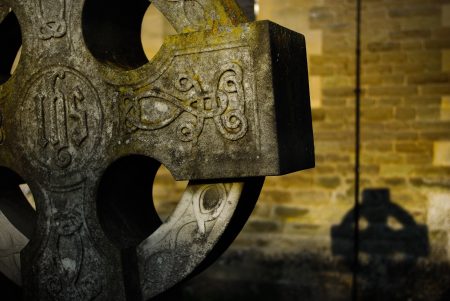Having sat beside and prayed with two dear friends these last few weeks who found themselves at the threshold of death, Loretta Christiansen and Yvonne Lewis, I’m now considering what it takes to trust God in our ultimate moment of testing, a challenge that also pertains to the living. There are numerous examples of how saints have faced this challenge through the centuries. Here is one of them.
Pastor and philanthropist, George Müller (1805 – 1898) is most renowned for his work among the orphans of Bristol, England, and the trust in God that he modeled during that ministry. His companion for 34 years of this work was Mary, his devoted wife; one biographer wrote that “their happiness in God and each other was perennial, perpetual, growing as the years fled by.”1 Yet in 1859, Mary had a serious bout of rheumatism, and her health declined during the 1860s. Müller prayed fervently for her recovery, continuing to trust that His sovereign God would do the right thing.
Yes, my Father, the times of my darling wife are in Thy hands. Thou wilt do the very best thing for her and for me, whether life or death. If it may be, raise up yet again my precious wife—Thou art able to do it, though she is so ill; but howsoever Thou dealest with me, only help me to continue to be perfectly satisfied with Thy holy will.2
Not only did George nurse her through her dying days, but, in February 1870, when Mary passed away, he saw her death in Christ as a “good death.”3 As such, it was a time for grateful thanks to God, as Müller told his church’s prayer meeting the following day.
Beloved brethren and sisters in Christ, I ask you to join with me in hearty praise and thanksgiving to my precious Lord for His loving kindness in having taken my darling, beloved wife out of the pain and suffering which she has endured, into His own presence; and as I rejoice in everything that is for her happiness, so I now rejoice as I realize how far happier she is, in beholding her Lord whom she loved so well, than in any joy she has known or could know here. I ask you also to pray that the Lord will so enable me to have fellowship in her joy that my bereaved heart may be occupied with her blessedness instead of my unspeakable loss.4
Shortly after her death, Müller preached a funeral sermon on Psalm 119:68, “Thou art good and doest good.” His attitude to Mary’s death clashes with the modern view that death is something within our control; God’s goodness results in His, not our, giving and taking life.
Every day I see more and more how great [is] her loss to the orphans. Yet, without an effort, my inmost soul habitually joys in the joy of that loved departed one. Her happiness gives joy to me. My dear daughter and I would not have her back, were it possible to produce it by the turn of the hand. God Himself has done it; we are satisfied with Him.5
| Footnotes: |
| 1 | Arthur T. Pierson, George Müller of Bristol: His Life of Prayer and Faith (London: J. Nisbet & Co., 1900), 235. |
| 2 | George Müller, Autobiography of George Müller or A Million and a Half in Answer to Prayer, comp. G. Fred Bergin (1905; reprint, Denton, TX: Westminster Literature Resources, Inc., 2003), 442. |
| 3 | This good death stands in sharp relief to the modern notion of euthanasia. |
| 4 | Pierson, 237. |
| 5 | Müller, 440. |





